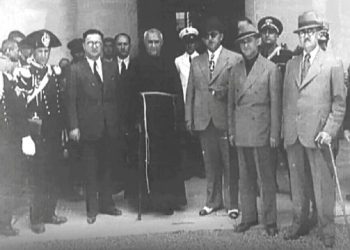By Vasil Qesari
Second part
Memorie.al/ The overthrow of the great totalitarian edifice in Albania would leave behind, not only the change of the system, accompanied by a lot of hopes, mirages and cries of happiness, but, unfortunately, also a lot of wounds, drama, victims, dust, milk and so on lies of all kinds. Ten years and more after that event, which deeply shook society, completely overturning many previous codes, rules and concepts, people still continue to ask themselves such questions as: What really happened in society Albanian, during the last 50 years of the dictatorship? How was it possible that the system managed to warp everything? Why did people accept it? What was the totalitarian logic of the transformation of society and the individual? How were the structures of totalitarian mechanisms conceived and functioning: propaganda, secret police and the exercise of the ideology of terror? How did it happen that among all the communist countries of Eastern Europe, Albania was considered an exception or a special case? Why did Enver Hoxha remain blindly, fanatically loyal to Stalin until the end, turning the country into a prison where violence, fear and purges continued until the end of the 80s? Why was the country so insanely isolated, locking people up between bunkers and barbed wire? Why, then, did all the above phenomena happen…?! The book “Post-scriptum for Dictatorship” does not claim to provide definitive answers to the above questions, or the complexity of the reasons that brought and maintained the totalitarian power in Albania. Nor is it a complete, deep and comprehensive fresco of the life and suffering that people experienced during that system. Its author, perhaps, has the merit that together with the retrospective view of the totalitarian period as well as the zeal of a passionate analyst, he has tried to turn his head back once again, to give not only his personal memories and opinions, but also to return once again to the vision of that era with the simple philosophy of preserving the Memory and supporting the Appeal to never forget the well-known maxim, that…the corpse’s nails and hair continue to grow even after death! Ten years or more after the great revolution, the book in question has current value and we hope it will be appreciated by the reader because, as an Albanian researcher also says… the greatest evil that can happen to a people comes when he fails to analyze his own past. An amnesic people are forced to be constantly neuropathic and repeat their painful experiences…!
Continues from last issue
THE ICON OF A TYRANT
In general, every Albanian who settles abroad has the desire to get to know the opinion of the society where he lives, about the events that have happened and are happening in his country. Among them, the majority are satisfied with little, that is, with partial information. Others are interested in more details, facts and details. Do you want to know what has been written by local analysts, researchers or journalists about the former totalitarian regime? How have they seen and observed us during that period? What was the opinion about Enver Hoxha, the system, society and Albanian life in general…?
Such interest often turns into a real obsession in certain individuals, which seems to end only with the discovery of all existing information on the above questions. This extremely possible exploration persistence, this phenomenon, is usually accompanied by a special psychological state. Sometimes, as they say, with the symptoms of the so-called post-communist syndrome. Or worse, with a shaken state of mind, which awakens dreams and fearful memories. With the resurgence of the anxieties of the totalitarian life and the doubt that that former ordeal can return again. With the solemn concern that, that time, should never be forgotten, etc.
The spiritual states experienced by such individuals, inexplicably, are also accompanied by a process of analysis, meditations and reflections, where reality, life, narratives and personal experiences of that time are confronted, on the one hand, and, on the other hand, chronicles, the facts, publications, books and considerations of the people of the country where he experiences exile. Such a rough situation, I also tried, after I closed some of the first troubles of the exile. That’s when, after I felt somewhat calmer, I hurried to explore the former totalitarian Albania, as the French had seen, judged and written about it.
It was a wet February afternoon in 1999 when, for the first time, I went to the municipal library of Bordeaux (Bordeaux), a multi-story building with modern architecture. (Built entirely in concrete, dural and glass. A gift to the largest city of the French Sud-Ouest from the former mayor, J. Chaban-Delmas. But, very soon I realized that, something about Albania, between an infinite universe of publications and several million copies, it was by no means an easy task, although the book search there was computerized and carried out by robotic devices.
But, besides this, there were also some other difficulties. Documentary and historical publications about Albania, especially for the period when it was a living Stalinist fossil, (excluding, of course, the many and well-known books of Ismail Kadare), were very few. However, another time, by chance or luck, as I continued my persistent searches, I did not come up empty-handed. One of the library workers, on the spot, recommended me a book that she had casually browsed only a short time ago, and that talked about Albania or someone who had once been its dictator, as she put it.
I became not only very curious, but also impatient. But when, after a few moments, she turned and politely put the book in my hands, it seemed to me as if she placed a heavy block of ice on them. And, as the bookseller was leaving, leaving behind the light and provocative perfume as well as the image of her frozen smile, I felt the wave of a deep and cold chill in my whole body.
Before my eyes I had a voluminous biographical publication about Enver Hoxha, written by Thomas Schreiber. On the cover, under the title ‘Enver Hoxha – The Red Sultan’, his former color photographs. It was a well-known photo, exactly the one that was published on the day of his death. With long white hair that covered his ears. With the cheekbones of the cheeks made up, the hanging gill and the neck thinned by years of erosion of diabetes…!
With cerberian eyes. Sharp as a knife!
Bright and juicy. Some of the consequences of repeated cerebral ischemia, and some of his rare ability that filled them with tears, every time he went out in public, when he was filmed on television or surrounded by crowds. With his familiar smirk from the executioner and the actor. As confusing as it is creepy. And finally, with his stylish suit: gray jacket, white shirt, frozen collar and red collar…!
For a moment I was lost in sad thoughts, or rather, in a surreal void of distraction. It seemed to me that he was not dead, but was still alive. As if there, in my country, nothing had changed, but it was always the same as before. Then, a lost constellation of dormant brain cells, somewhere in a lost corner of the cortex, suddenly provoked another image, as absurd as it was terrifying.
As if he had risen from the grave and was again in charge. There in distant Albania. Closed. Isolated. Cold and forgotten by the world. As always, on the platform of the May 1 holiday. With the extra-large borsalina on the head. With bunch of carnations in hand. And then, giving speeches after speeches. At Bureau meetings, plenums and congresses. Giving directives for new revolutionary movements, or compiling forecasts and synoptic pictures, on new hostile groups.
I took the book home and read it. Of course, I didn’t even expect to discover Enver Hoxha, by Thomas Schreiber. And, however, in such cases, curiosity is and remains great.
Specifically, what seemed to me to be the most interesting and positive thing about the book in question, was the fact that it had a strange force within it that pushed you to return once again to the perspective of that era. Analysis of her retrospective observation. Meditations and reflections. The trial about an extremely violent individual, who completely dominated Albanian life, for more than 41 years in a row.
In such circumstances, along with the desire to exclude from myself any personal bias or subjectivism, as well as possible influences from readings, writings, comments, the Tirana Party Conference. Or, even afterwards, during the break with the Soviets. Meanwhile, there are those who, regardless of the fatality and consequences of his violence, manage to forgive him all the sins of the period 1944-1960, reasoning that, nevertheless, he still had a chance and time to make amends. But, unfortunately, that thing didn’t happen…!
(Here’s why… Enver Hoxha’s biggest crime is that he separated Albania from Western Europe. If he had, he would have returned it from Europe in 1961, when it separated from the Soviets or even later when split with the Chinese, its modern history would have been quite different and the tragedies that followed would have been avoided…!)
Of course, it is absolutely indisputable that, in Albania, without Enver Hoxha, many things would have gone differently. But, at the same time, it should not be forgotten that it was no exception to the Eastern Communist Bloc. From the system of the Dictatorship of the Proletariat. From the Soviet model of socialism, the influence of Stalin’s totalitarian power, etc. Its leaders did not differ at all from the constellation of militant Stalinist leaders of the East such as: Tito in Yugoslavia, Dezhi in Romania, Dimitrov in Bulgaria, Rakosh in Hungary, Godvaldi in Czechoslovakia, etc.
And, in addition, it should be underlined the fact that another defining feature of the consolidation process of the totalitarian leaders in the former socialist camp in general and, specifically in Albania, was the political, social and psychological condition of their peoples from the beginning victory over the fascist Nazi invaders. It is already known that, just like in those countries and here, the communist party and its leader were widely supported by the popular masses, which came out of the war poor and hungry and then, with joy and enthusiasm, believed in utopia of building a new, just and prosperous society.
In short, in what is otherwise called: Totalitarian Illusion.
Support from the masses – this has been one of the main keys to the triumph of totalitarian societies, and therefore, to the absolute power and authority of their tyrannical leaders. Regarding this, Hannah Arendt, among others, writes that:
“…totalitarian regimes, as long as they are in power and, also, as long as the totalitarian leaders are alive,” command relying on the masses.” Hitler’s seizure of power was legal and by majority rule (meaning that the majority of the people voted for him – my note) and neither he nor Stalin would have been able to maintain their authority over the broad masses of the people, and they would not be able to face so many internal and external crises, if they did not enjoy their trust and full support…!
Even in the case of Albania, Enver Hoxha, you wouldn’t have governed and you wouldn’t have been able to keep his authority and absolute power for decades, if you didn’t have the support of the masses. Because the charisma of dictators of his caliber was no longer based on the power of the lie of demagoguery than in the fact that they were able to organize the masses into a single collective unit which then not only had to obey them, but also support them in every call and directive, submissively reliability was impressive.
But the process of suggesting and blinding the masses did not end there. First, after creating security and consolidating power, dictators turn to work for the glorification of their cult.
(In fact, the establishment and perfection of the cult of the One is a process which is carried out without great difficulty. Because it is the totalitarian system itself that secretes the cult of the Chief into society, just as the snake does its poison. Of course, even Enver Hoxha would not escape this phenomenon, which, moreover, from his youth stood out for his extravagant ambitions and exemplary narcissism).
Thus, over the years, his cult rose higher and higher, like a pharaonic pyramid. He embodied not only the brain and foresight of the Party, but was also a classic of Marxism-Leninism, scientist, historian, writer and military strategist. He had, in his hands and in his head, the Monopoly of truth. His figure was absolute. Not only his ideas, directives, messages and speeches, but also his actions, movements, behaviors and everyday gestures, took on a magical, heavenly and hypnotizing significance.
The icon of Enver Hoxha’s cult or as it is euphemistically called in the totalitarian vocabulary: of the First, the Great, the Chief, began to shine as early as November 29, 1944. Exactly then, when, in the capacity of the commander, got on the tribune erected in front of the “Dajti” Hotel to greet the people, on the occasion of the liberation of the country from the Nazi-fascist invaders. Over time, his figure was further embellished and took on typical extreme totalitarian dimensions, especially during the late 60s and early 70s.
Then, when he described himself as the most loyal and only knight of true Marxism in the whole globe. Then, when not only China, but also a good part of the world left movement, was conquered by the myth of Mao Zedong and his Red Gospel. It was precisely in that period that Enver Hoxha became very jealous and it occurred to him that his historical Marxist role and contribution were much more important than those of the dragon of the Red East. (The Albanian rhapsodists used to sing: Today the world has two lions, one Asia, one Europe!). It was the years when with the consent, approval and for his boundless greed, lies and demagoguery than in the fact that, they were able to organize the masses into a single collective unit which then, not only had to obey them , but also to support them in every call and directive, with submission and reliability impressed.
But the process of suggesting and blinding the masses did not end there. First, after creating security and consolidating power, dictators turn to work for the glorification of their cult. (In fact, the rise and perfection of the cult of the One, is a process which is carried out without great difficulties. Because it is the totalitarian system itself, which secretes the cult of the Chief in society, just like the snake its poison). Of course, even Enver Hoxha would not escape this phenomenon, which, moreover, from his youth stood out for his extravagant ambitions and exemplary narcissism.
Thus, over the years, his cult rose higher and higher, like a pharaonic pyramid. He embodied not only the brain and foresight of the Party, but was also a classic of Marxism-Leninism, scientist, historian, writer and military strategist. He had, in his hands and in his head, the Monopoly of truth. His figure was absolute. Not only his ideas, directives, messages and speeches, but also his actions, movements, behaviors and everyday gestures, took on a magical, heavenly and hypnotizing significance.
(“Undoubtedly, one of the most important characteristics of totalitarian regimes, especially in their most extreme forms, was the creation, development and strengthening of mutual and strong ties between the top of power and the “base”, between the Charismatic Chief and the Masses. Manipulated, but also full of enthusiasm and piety, they were the “engine” that set the official ideology in motion. This is exactly where the strength of the totalitarian regimes was…”! (According to V.V.Dame’s – J.S. Drabkin “Le phénomène totalitaire” published in the book “Nazisme et communisme” by Marc Ferro. Editions Pluriel. 2000.)
In fact, Enver himself was the builder of his cult. This, among other things, is evidenced by the way he manipulated it, taking great care not to have any other version of his life. In this context, it is known that he himself eliminated all those who once knew him very closely, and who could testify that his figure did not at all match the myth of the legendary leader. It was precisely after the consolidation of power that Enver Hoxha and the Party led by him acquired other new qualities. Opponents within the Party were ruthlessly eliminated or imprisoned and exiled, accused of the most monstrous crimes. It was exactly then that the relative freedom to think and act was replaced by unanimity, that voting began to be done openly and by raising the hand, etc. Thus, little by little, even the leading leadership was reduced and completely identified with the One and his Cult.
The icon of the dictator was hymned and amplified in the most frenetic way and beyond any limit. With dizzying zeal and hysteria. Wherever you are. With jealousy to replace God, whom he had killed in 1967.
It was then that the sides of the hills and mountains were covered with large inscriptions, which evoked his name, glory and immortality. (Thousands and thousands of people were mobilized to carve on the slopes of Mount Shpirag, near Berat, the giant Parti-Enver double entendre, while such processions and rituals were carried out at any time, without interruption, all over the country).
In books, songs, films, theater and any other artistic creation, only his figure was glorified. Thus, the Icon was present everywhere. Not only in every Albanian house, but also in streets, shops, factories, cafes, garages, barbershops, schools and kindergartens. There, where the little ones were taught that they had two mothers. First, great mother Parti and, secondly, the mother who was born to him in the maternity ward and who was at home.
Consequently, his name became synonymous with the nation and slogans such as: Enver Hoxha, o long life!, The name of Albania and Comrade Enver are one and inseparable, or Comrade Enver Hoxha is the architect of socialist Albania, evoked the figure his legendary. (The history of dictators repeats itself. Such popular praises were once known and experienced by Mussolini, Hitler and Stalin)
But, on the other hand, we repeat, Enver Hoxha, who was also a perfect master of his cult. His apparent sentimentality produced an extraordinary suggestive effect on the masses. Let’s remember for a moment, the look of his excited face, during the parades of different holidays. Hand salutes or Republic hats. (Gesture copied by his idol and teacher, Stalin, during parades in Moscow’s Red Square). It should not be forgotten that, at that time, such looks, movements and gestures provoked a collective hypnotization of souls…! Memorie.al
The next issue follows




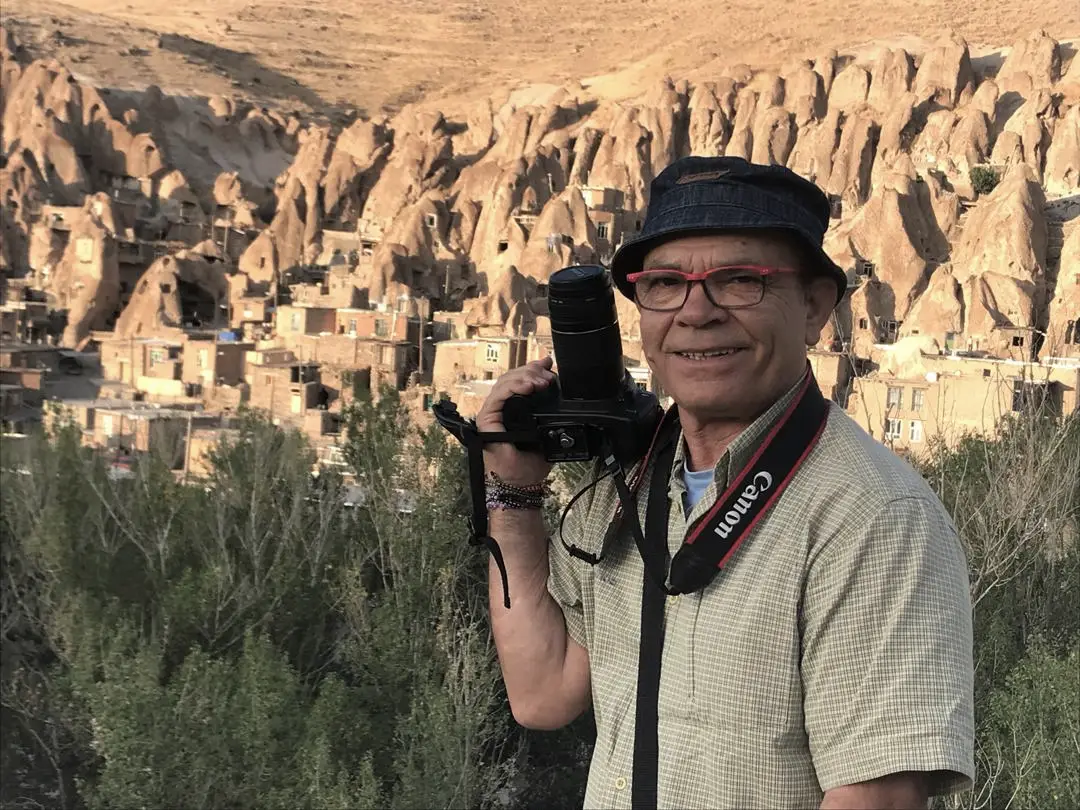

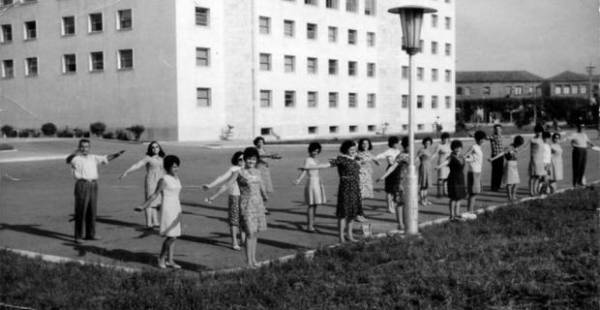
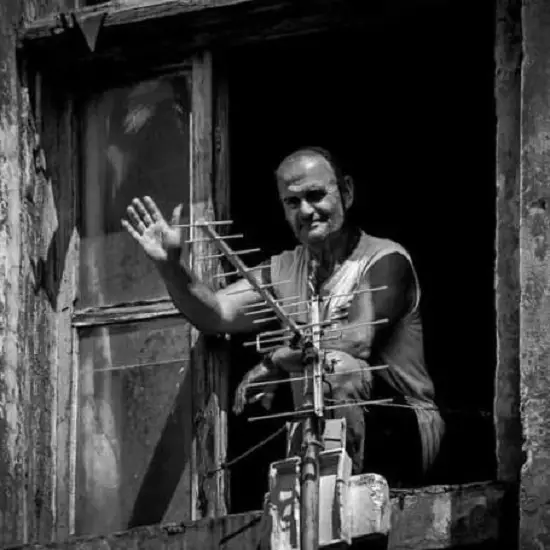
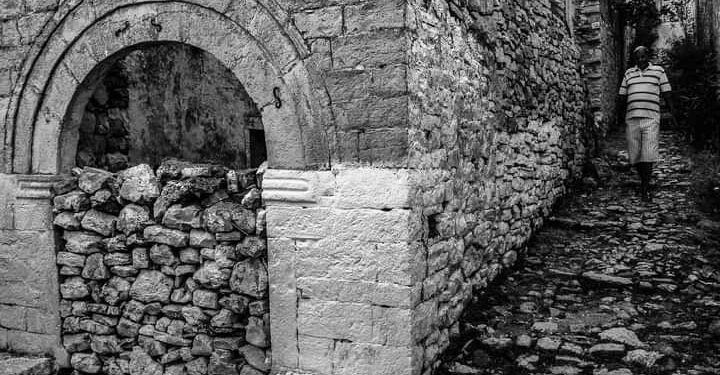
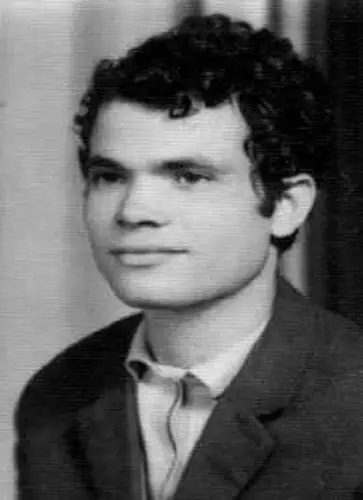
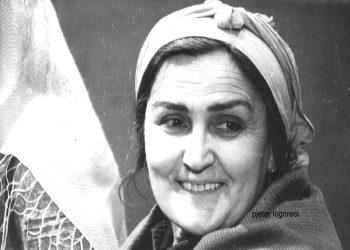
![“When the party secretary told me: ‘Why are you going to the city? Your comrades are harvesting wheat in the [voluntary] action, where the Party and Comrade Enver call them, while you wander about; they are fighting in Vietnam,’ I…”/ Reflections of the writer from Vlora.](https://memorie.al/wp-content/uploads/2025/06/admin-ajax-4-350x250.jpg)


